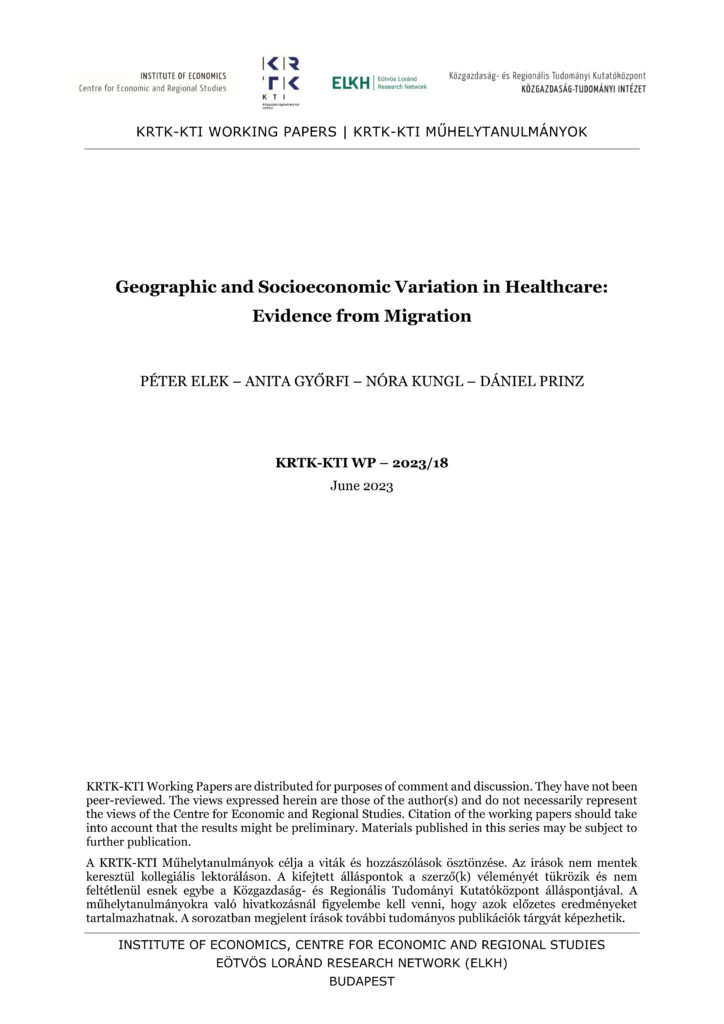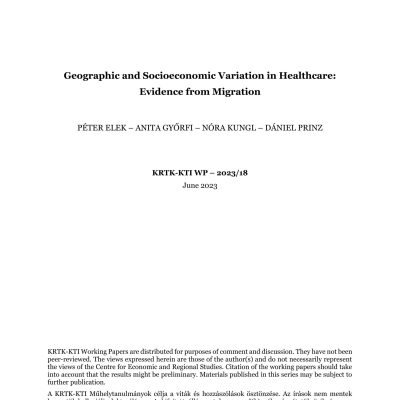We study variation in healthcare utilization across geographies and socioeconomic groups in Hungary. Exploiting migration across geographic regions and relying on high-quality administrative data on healthcare use and income we show that the role of place-specific supply factors is heterogeneous across types of care and across socioeconomic groups. Overall, place-specific factors account for 68% of the variation in outpatient spending and 35% of the variation in drug spending, but almost none of the variation in inpatient spending. Place effects explain four-fifth of outpatient spending variation for non-employed working-age individuals, but less than two-fifth for individuals with above-median wage incomes. There is a positive association between place effects and outpatient capacity, especially for low-income individuals. These results suggest that access to healthcare varies especially for low-income people even in a context with universal coverage.
Publikációk / Geographic and Socioeconomic Variation in Healthcare: Evidence from Migration
2025
Jún
30
H
K
Sz
Cs
P
Sz
V
26
27
28
29
30
31
1
2
3
4
5
6
7
8
9
10
11
12
13
14
15
16
17
18
19
20
21
22
23
24
25
26
27
28
29
30
1
2
3
4
5
6
Következő hónap >
a
2025
Jún
30
H
K
Sz
Cs
P
Sz
V
26
27
28
29
30
31
1
2
3
4
5
6
7
8
9
10
11
12
13
14
15
16
17
18
19
20
21
22
23
24
25
26
27
28
29
30
1
2
3
4
5
6
Következő hónap >



